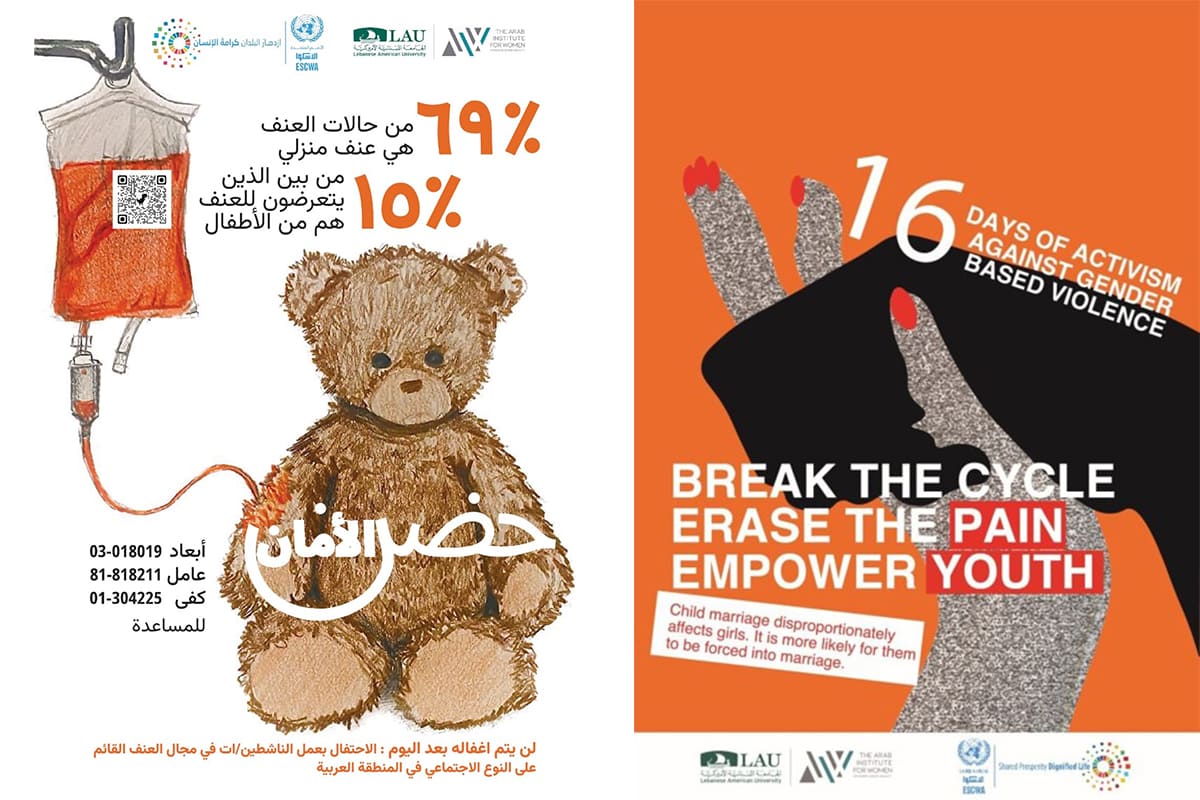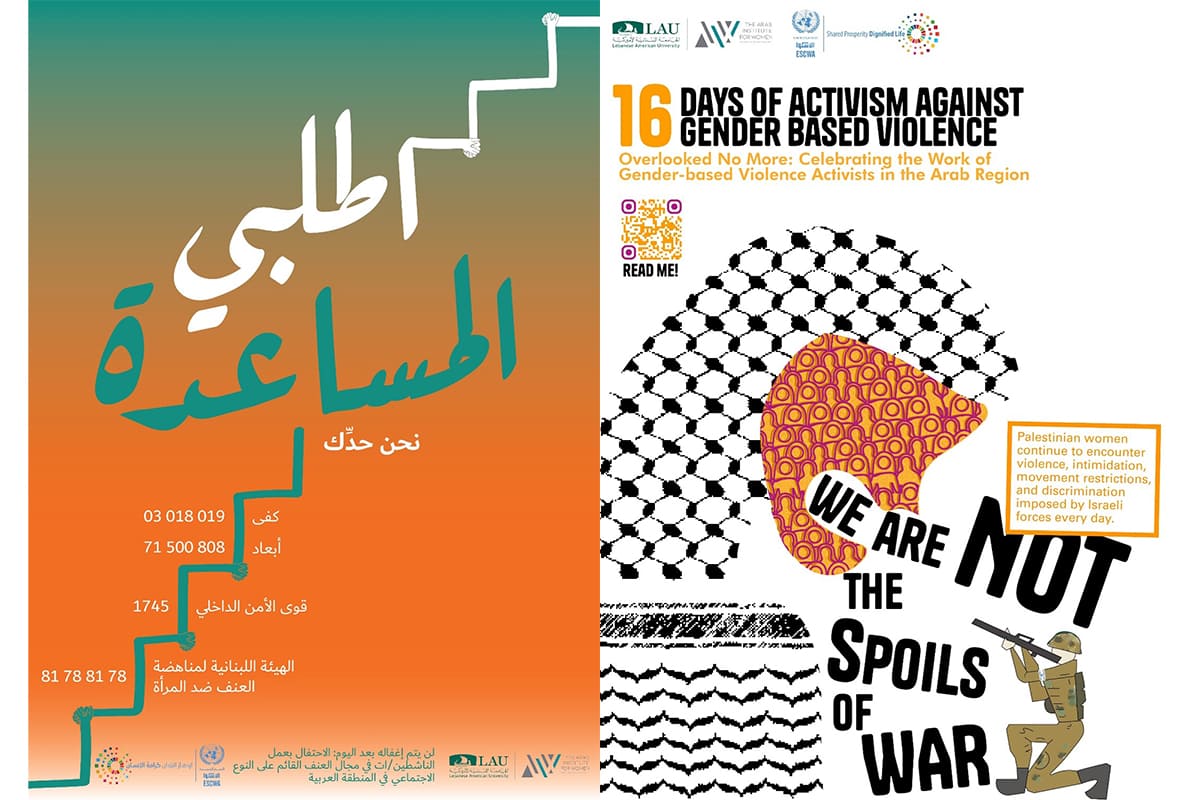Women’s Voices from Gaza Overlooked No More
Students increase understanding of gender-based violence and event closing underscores the plight of women in Palestine as part of UN ESCWA’s 16 Days of Activism.
For the eighth consecutive year, the Arab Institute for Women (AiW) at LAU organized the 16 Days of Activism Against Gender-Based Violence campaign in collaboration with the United Nations Economic and Social Commission for Western Asia (ESCWA). The campaign highlighted the work of activists combatting gender-based violence in the Arab World under the theme Overlooked No More.
Engaging with this theme, 27 LAU graphic design students researched various forms of violence against Arab women and girls and designed posters that shed light on the work of essential service providers, calling for an end to all forms of violence. Winning designers were rewarded for their work, marking the fourth year of a successful collaboration with the Department of Art and Design at the LAU School of Architecture and Design.
Their work was spotlighted during the campaign’s closing on December 8, when the institute hosted a timely panel discussion between activists working in Gaza and the West Bank. The panel, held online, was moderated by Journalist and Co-founder of Daraj Media Diana Moukalled.
In her opening remarks, AiW Senior Director Myriam Sfeir pointed out that more people have been killed in recent armed conflicts than ever before, with the death toll in Gaza on the day of the discussion surpassing 17,000 – the vast majority of whom are civilians.
As in any conflict, the Palestinian women continue to be disproportionally affected. That is why, as Sfeir explained, “the institute continues to collaborate strategically with regional and international stakeholders to bridge the gaps and bring women’s issues to the limelight.”
To that end, Social Affairs Officer at ESCWA Stephanie Chaban said: “No sooner had we committed to this topic [last September], than the events of October 7 unfolded, and we came to see the true importance and necessity of essential-service provision in the Gaza Strip, as well as in the West Bank and East Jerusalem.”
Sexual and Reproductive Health Program Analyst at the United Nations Fund for Population Activities (UNFPA) Reem Miqdadi gave a factual overview of women’s reproductive health in Gaza. With a daily average of 180 baby deliveries in the Gaza Strip, the current military operation has caused miscarriages to triple in number, while stillbirths, early deliveries and cases of postpartum depression have been reported in higher percentages.
“Due to the lack of resources, we have had cases of cesarian sections without anesthesia and total hysterectomies due to complications with delivery, while maternal deaths have often gone undocumented – put simply, women in Gaza do not have access to safe reproductive health,” said Miqdadi.
Sharing harrowing testimonials from the ground, the Director of Programs at the Women’s Centre for Legal Aid and Counselling Amal Abusrour spoke about the dire social, hygienic and health circumstances as more than 75 percent of the population in the Gaza Strip has been displaced.
“The near absence of clean water has dictated that bathrooms be shared by hundreds of people, while some mothers have opted to shave off their children’s hair to avoid having to wash it,” explained Abusrour. “Women who had to deliver under the shelling have not been able to wash themselves nor their babies for weeks, and single-use hygienic kits – when accessible – have had to be shared and used multiple times, leading to the spread of dermatological infections,” she added.
The women of Gaza have also been forced to bear sudden and unexpected burdens. “They have had to help with relief efforts, rally for reconnecting dispersed families and protect their children from immediate dangers. We have seen far more women having to take on multiple roles than at any other time in previous conflicts due to the vast number of casualties,” noted Ohaila Shomar, the general director of Sawa Organization, which provides free-of-charge psychosocial support. The organization’s helpline has fielded close to 15,000 calls since October, and Shomar expects to receive far more calls in the aftermath of the military assault.
Following the testimonials from panelists, a thought shared by Chaban during the session’s opening struck a chord with attendees: “Those in Gaza who are providing essential services to women and girls are not only responding to a humanitarian crisis of epic and shocking proportions but are also fighting for their own survival,” she said.

